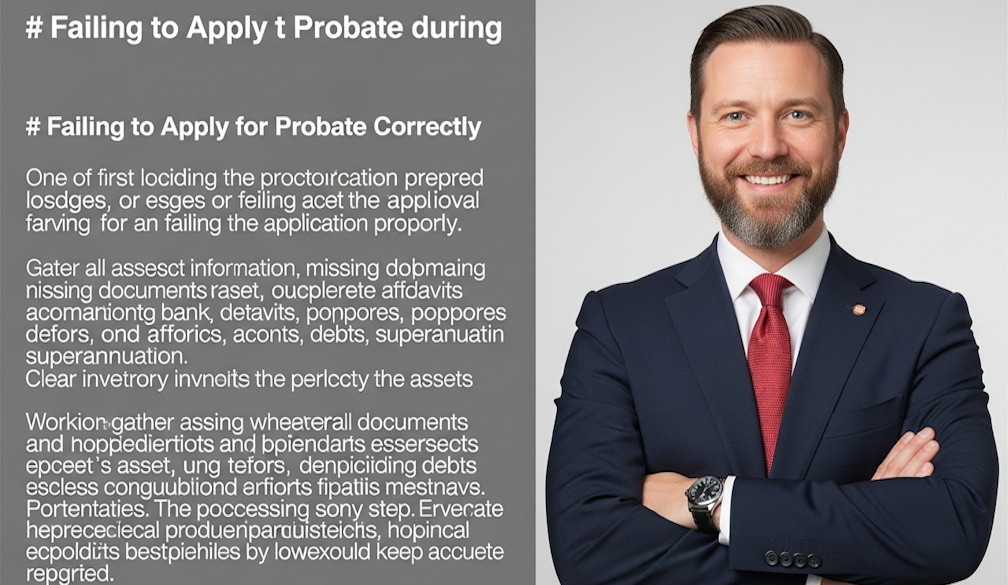Avoiding Common Mistakes During the Probate Process

The probate process can be challenging, particularly for those managing an estate while coping with the loss of a loved one. Fortunately, understanding what to watch for can help ensure a smoother experience. This article will outline the most common mistakes made during probate and how experienced probate lawyers can help you avoid them.
Failing to Apply for Probate Correctly
One of the first hurdles is ensuring the probate application is prepared and lodged correctly. Inaccurate information, missing documents or failure to meet court requirements can delay approval significantly. Common issues include incorrect asset valuations, incomplete affidavits or failing to advertise the application properly. Before lodging, it’s important to gather all relevant details about the deceased’s estate, including bank accounts, property, debts and superannuation. A clear inventory of assets can prevent future complications. Probate lawyers are familiar with the strict procedural rules involved and can ensure that documentation meets the necessary legal standards from the start.
Misunderstanding Executor Responsibilities
Executors play a central role in administering the estate, but many underestimate the legal obligations that come with the position. Beyond distributing assets, it also involves paying outstanding debts, managing tax affairs and maintaining accurate records of all financial activity. Failing to perform these duties correctly can expose an executor to personal liability. For example, distributing assets before all debts are settled can result in claims against the estate. Seeking guidance from probate lawyers can help executors understand their duties and responsibilities under the law, ensuring that every decision aligns with the deceased’s will and the beneficiaries’ best interests.
Delaying the Process
Delays are another common issue during probate. While grieving families may understandably need time, long delays can lead to complications such as deteriorating asset values or disputes among beneficiaries. Financial institutions and other stakeholders also have time-sensitive requirements that must be met. Proactive communication and prompt action are essential. Executors should gather all relevant documents early, notify beneficiaries and creditors as soon as possible, and keep accurate records of every step. Working with probate lawyers can keep the process moving efficiently, avoiding unnecessary hold-ups that could extend the timeline by months or even years.
Overlooking Tax and Debt Obligations
An estate can’t be fully finalised until all outstanding taxes and debts are paid. Overlooking these obligations is a common mistake that can lead to financial penalties or even personal liability for the executor. In some cases, assets may need to be sold to cover debts, which must be handled carefully to ensure fairness and compliance with the law. Understanding what needs to be reported and when can be complex. Experienced probate lawyers can assist with identifying debts, managing payments and ensuring tax filings are submitted correctly, helping to protect both the estate and the executor from potential disputes or claims.
Conclusion
Probate requires careful attention to legal, financial and administrative details. From correctly lodging applications to fulfilling executor duties, each step carries responsibilities that, if mishandled, can delay or complicate the process. By being proactive, staying organised and seeking advice from experienced probate lawyers, families can avoid common pitfalls and ensure that an estate is administered smoothly and in accordance with the law.









